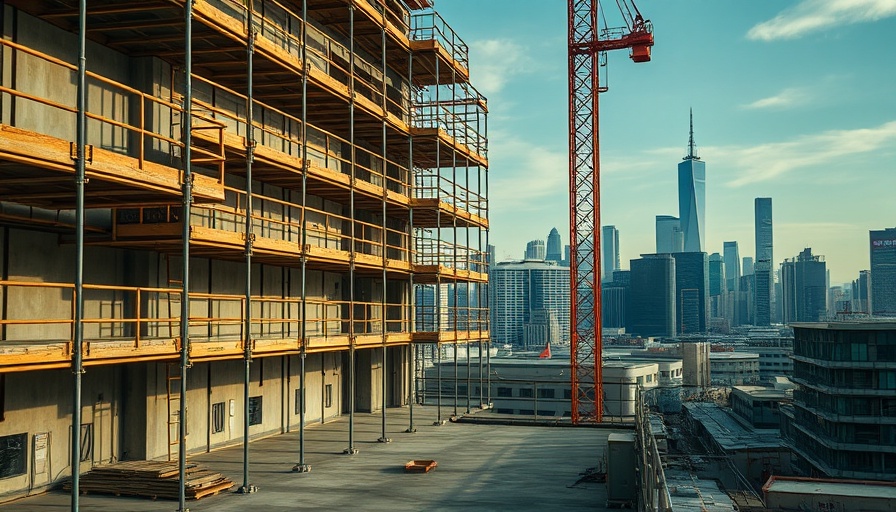
Understanding the Delay of the Building Safety Levy
The UK government's recent decision to postpone the Building Safety Levy until Autumn 2026 has stirred a mix of relief and apprehension among property developers. The levy aims to collect over £3.4 billion from developers of residential properties, intended to fund the remediation of unsafe buildings. This extra year grants developers additional time to integrate the levy into their project costs and allows regulatory bodies to prepare adequately for its implementation.
Implications for the Housing Market
Experts like Ian Fletcher, Director of Policy for Real Estate, highlight that the delay is especially welcome given the current challenges the housing sector faces. Developers have been struggling with viability issues and the struggle to commence new projects, particularly those that require significant initial outlay. The postponement also reflects ongoing reorganization within local governments that manage building regulations, emphasizing the need for a stable framework before the levy takes effect.
Consultation and Future Regulations
The Building Safety Levy is not final yet; it is subject to public and technical consultations. These discussions will allow stakeholders from the construction industry to voice their concerns and suggest improvements. Concerns from the Home Builders Federation point to the potential adverse effects this levy could have on new housing projects, raising questions about how it may impact supply in a time when housing shortages are critical.
Exploring Solutions and Improvements
As this situation evolves, stakeholders must consider how to mitigate the negative impact of safety regulations on housing development. Some experts suggest adopting simpler models based on existing Community Infrastructure Levy (CIL) rates or providing exemptions for rental accommodation developers who do not benefit from these funds directly. These adjustments could lead to more viable housing projects that are essential for addressing the housing crisis.
As property owners and investors, staying informed about these regulatory changes will be crucial. The delay could present new opportunities for strategic investments as the market adapts to these developments. Whether you are planning new projects or considering investing in existing properties, understanding the ongoing regulatory landscape will enhance your position in the ever-evolving UK property market.
 Add Row
Add Row  Add
Add 





 Add Row
Add Row  Add
Add 








Write A Comment